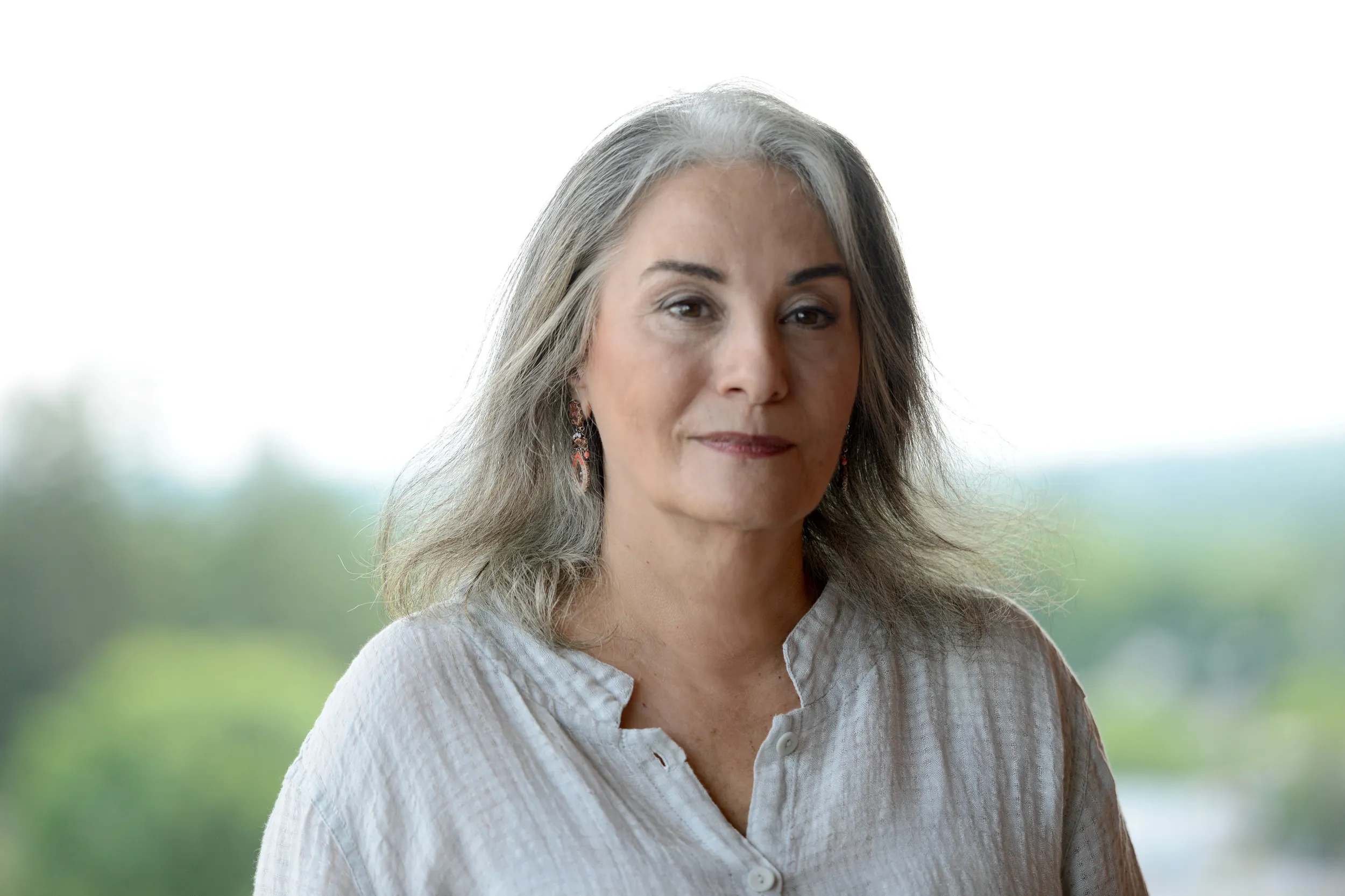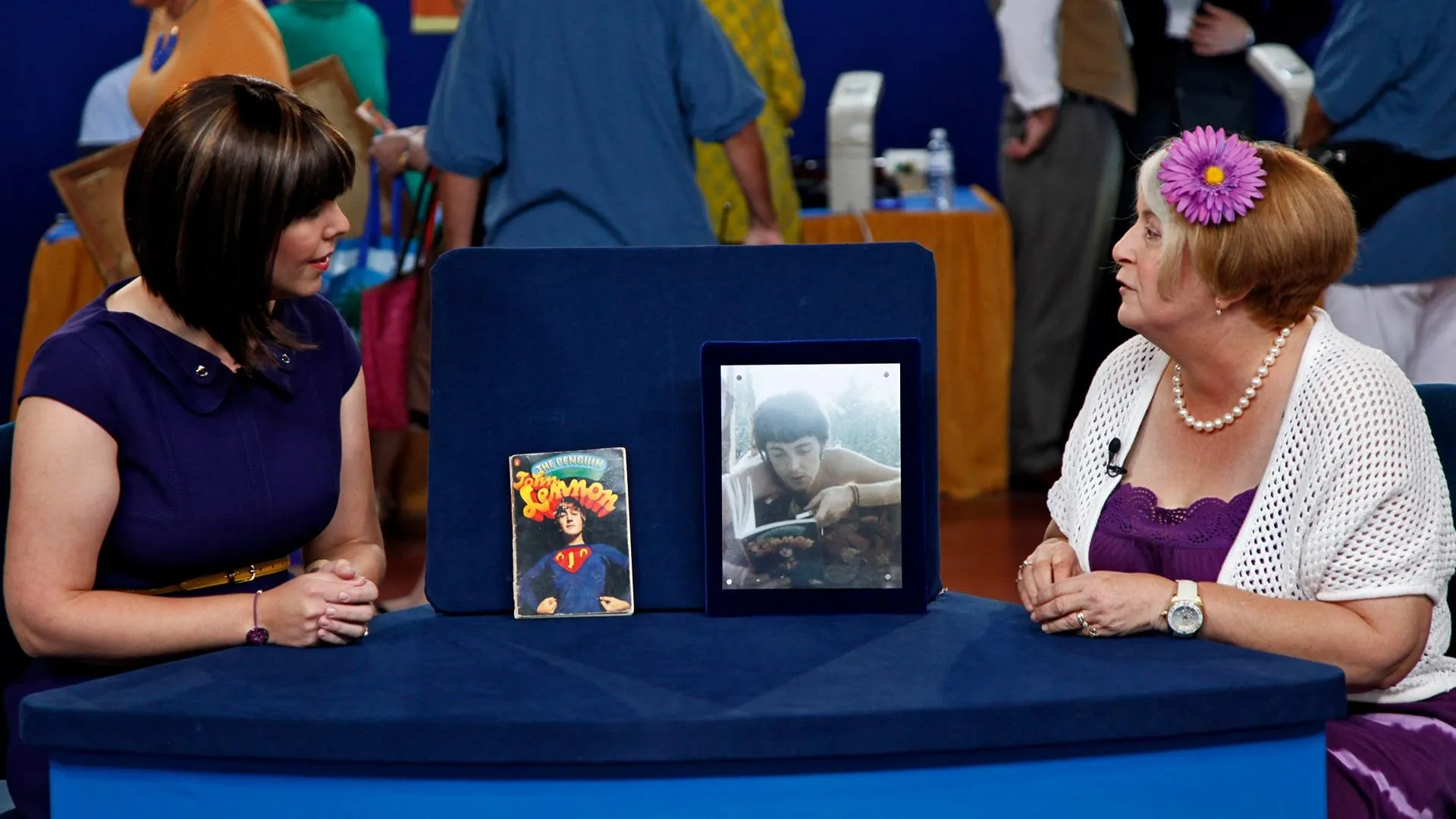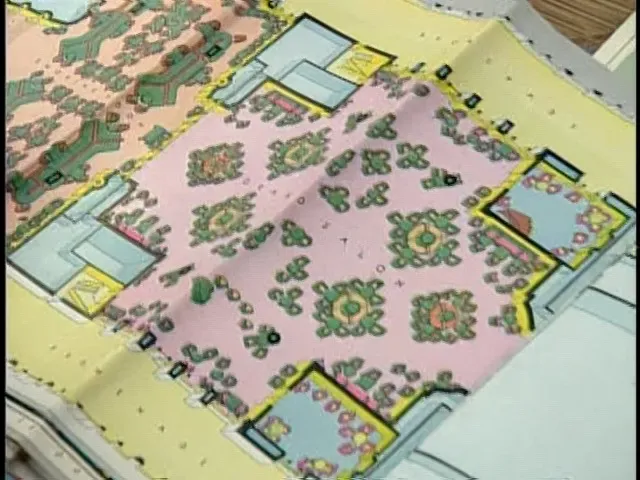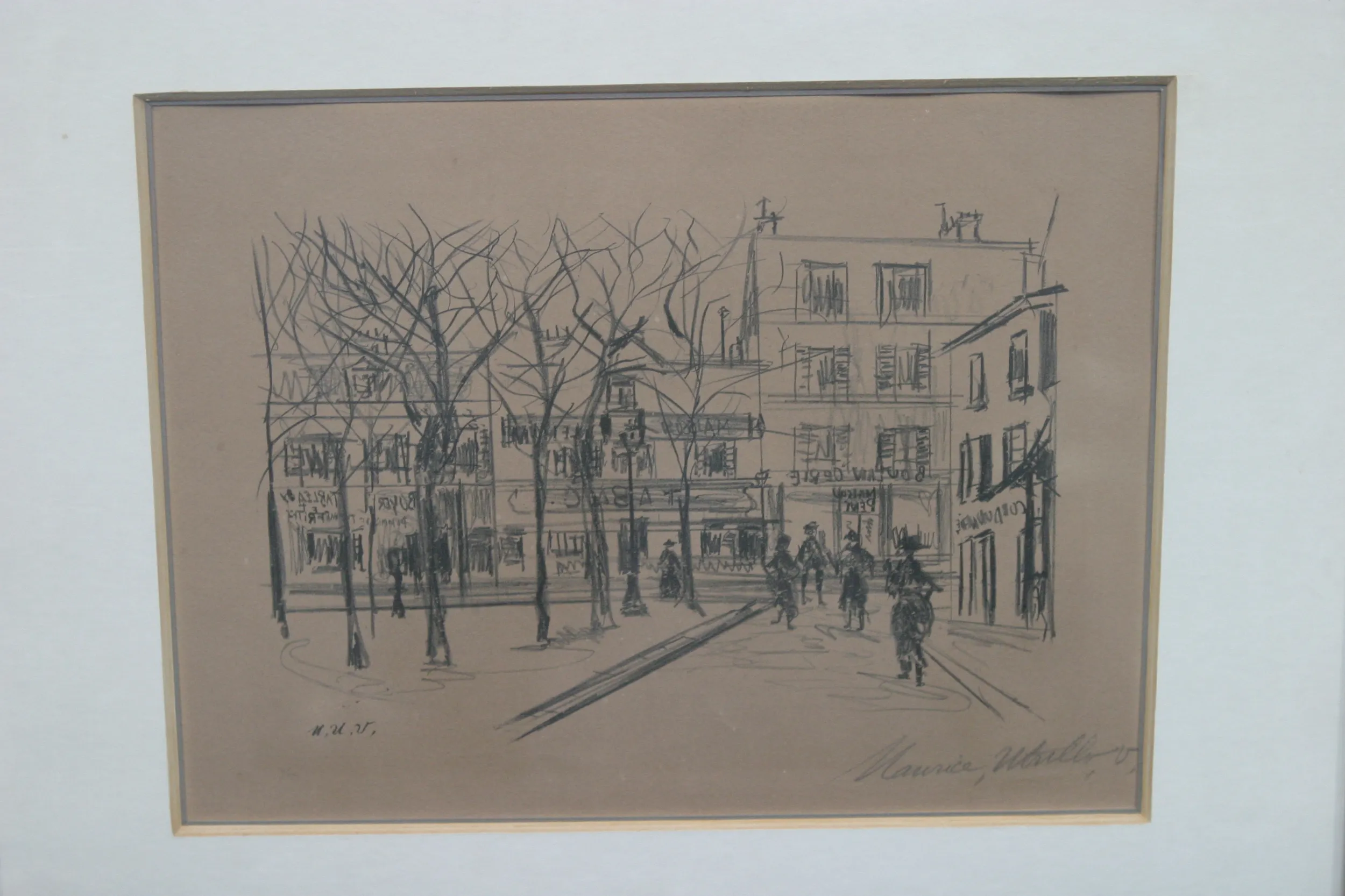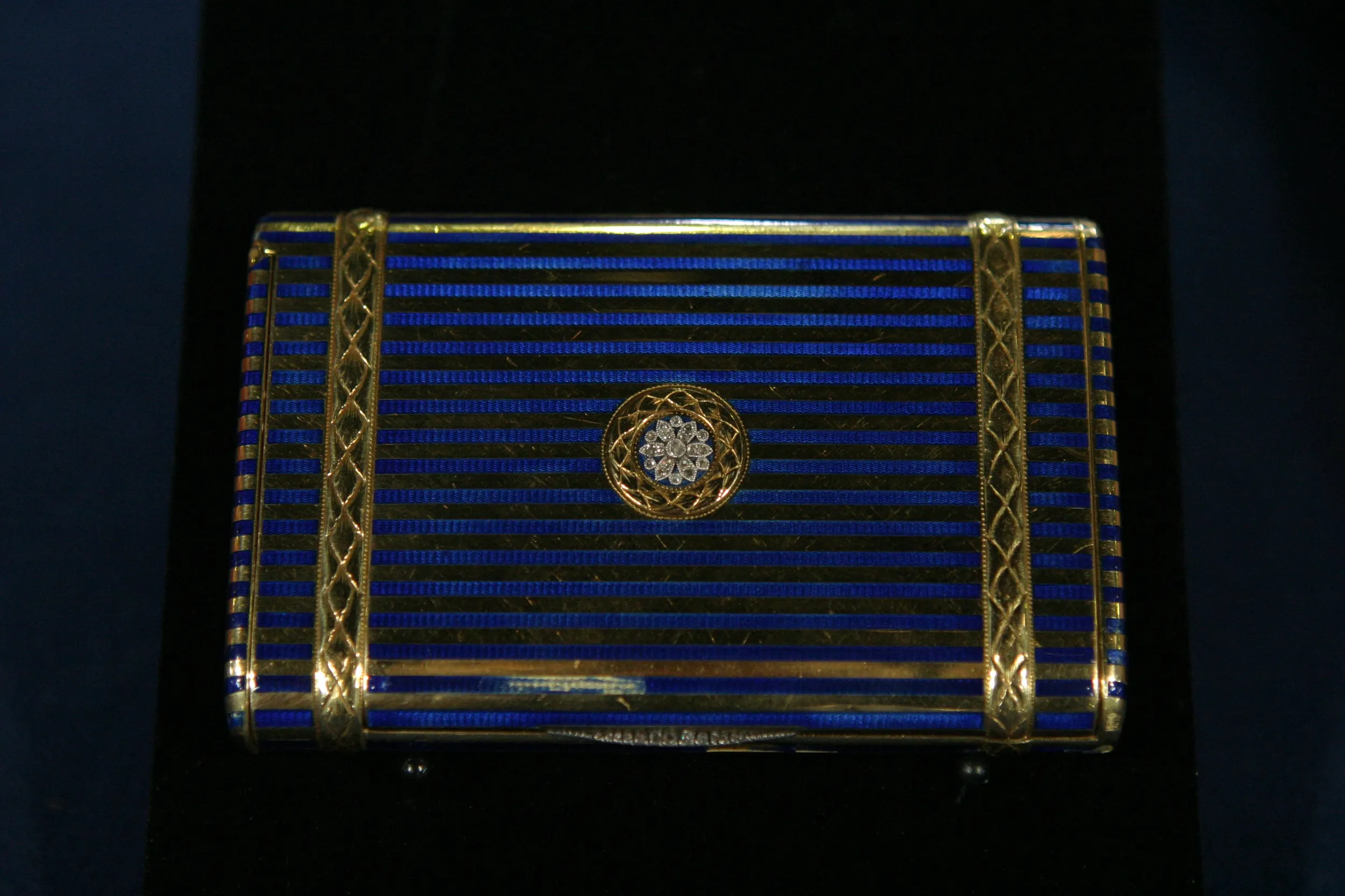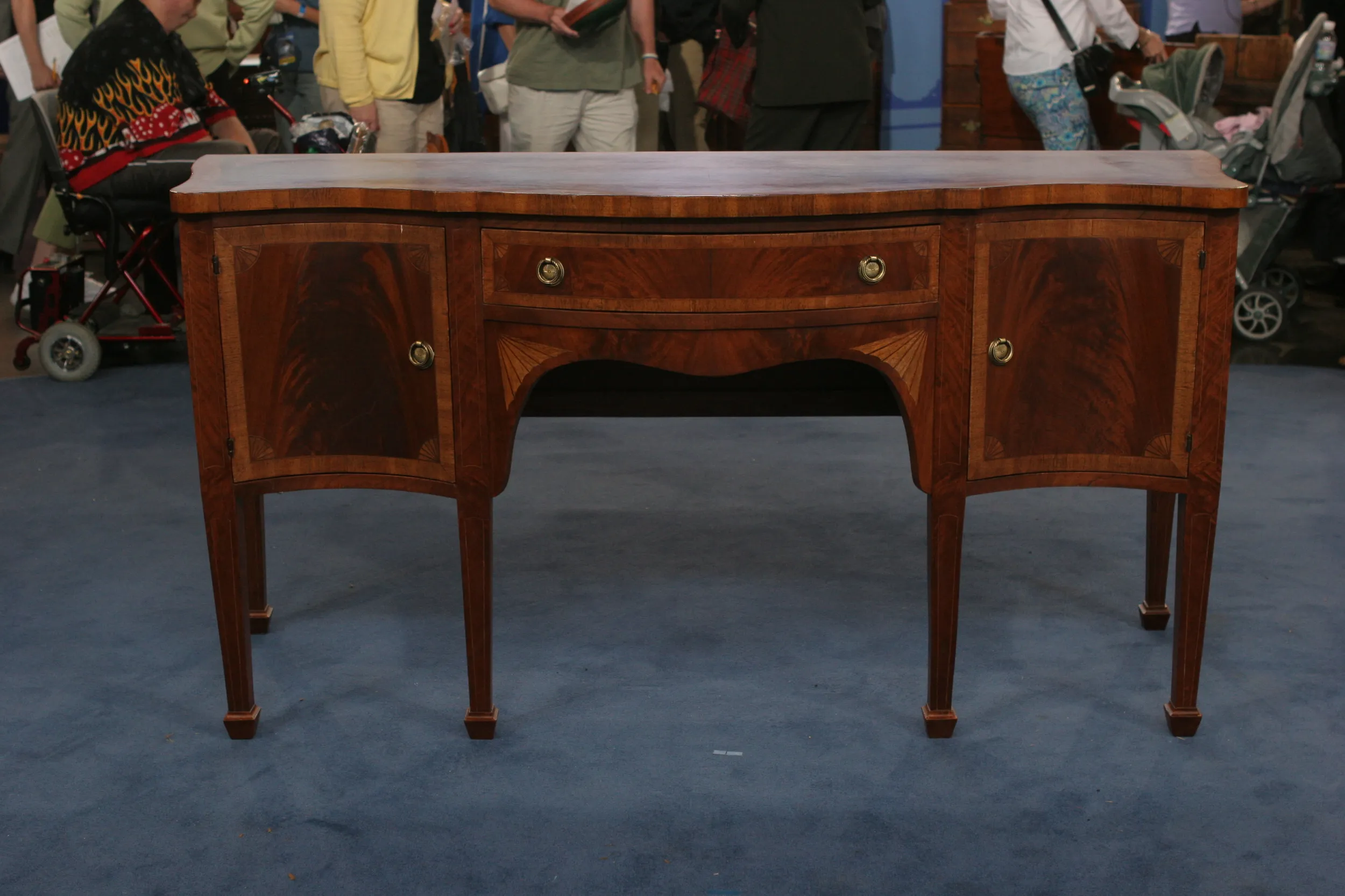GUEST: Well, they were given to me by a neighbor probably around 1950 for my birthday. I was a young one. I guess I was probably about 13 then. You know, cowboys and Indians was the game of the time, and I guess I was into that. I always admired them, how pretty they were. And shortly thereafter, I left to go in the Navy, and they've been boxed away for what, 50 years. My mother stored them, and I found them when she passed away. About six years ago I found them.
APPRAISER: Six years ago?
GUEST: In a box with my name on it. It said, "Roy's Indian bowls." And took them home, and they've just been sitting in a China cabinet since then. I'm curious to know a little bit about them.
APPRAISER: These baskets represent the work of the southern Paiute, and they're from Utah and Nevada in the Great Basin region. The Paiutes were always very good at weaving baskets that had excellent symmetry and stitch count. They're very tightly woven. But at the turn of the century, the turn of the 20th century, they started covering the baskets with these sheaths of glass beads. So it's a fairly new, in the world of antiques, technique of basket weaving. But what the quandary is here in displaying them is showing how beautifully they're worked in their entirety. They're still making them today, but with everything... And I don't know how we keep going backwards. Bead colors change, we don't have quite the quality of bead colors, and these are lovely, lovely bead colors. They're glass trade beads, but they speak of the time that they were made, which probably was the 1910s, 1920s. And each one of them is completely covered. To the base. Have you ever been interested in what their value would be?
GUEST: Well, I've always been curious. I had no idea even what to guess. I thought maybe $100 apiece.
APPRAISER: Well, they've appreciated well since they were given to you. These two forms here, at auction would each sell for about $500 to $700.
GUEST: Wow.
APPRAISER: This particular one would have... would carry a value of $1,000 to $1,200.
GUEST: All right. That's way more than I thought they would be. Maybe I'll have to pass them on to some great-grandkids.
